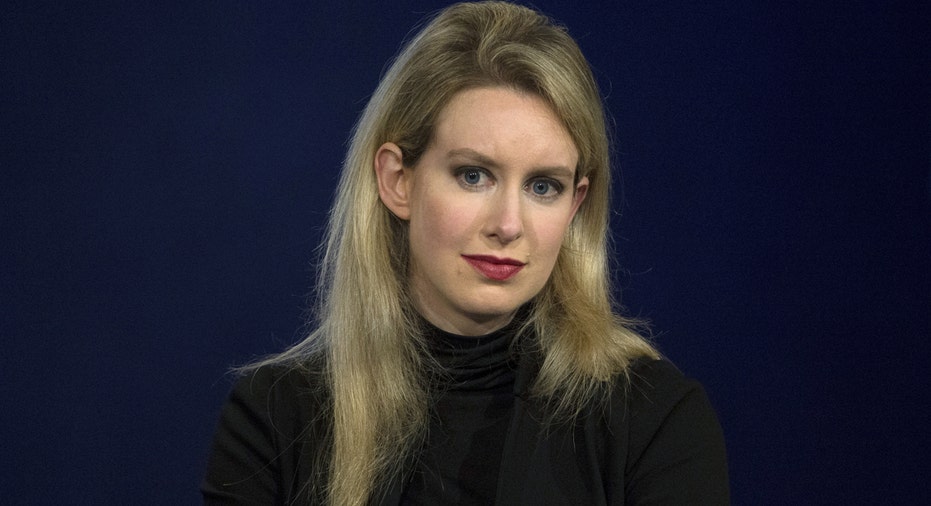Theranos Shake-Up: Too Little, Too Late

My initial reaction to yesterday’s big shake-up at Theranos was “too little, too late.” More to the point, the restructuring announcement doesn’t address the company’s core problem: founder and CEO Elizabeth Holmes.
She can “retire” president and COO Sunny Balwani, recruit new executives to the fold and add names to the board, but as long as Holmes remains CEO – and make no mistake, she is still 100% in control of Theranos – I don’t see any of those actions saving the company.
Theranos is still undeniably Holmes’ baby. She dropped out of Stanford at 19 to give life to her dream of revolutionizing lab testing with a few drops of blood. For 13 long years, Theranos has been her life. It’s not just her vision at the heart of the company, but her leadership at the helm. And she’s not about to give that up.
In my view, all the issues we’ve seen – from the massively overhyped claims to the secrecy that prevented the company’s proprietary technology from being vetted by peer-reviewed biomedical journals and investors – are direct reflections of Holmes’ own dysfunctions.
Founders are creators, and not just in the product and business sense. They also create company cultures in their own image. We’ve seen it time and again, especially in the technology industry.
Amazon’s uber-competitive culture, known internally as “purposeful Darwinism,” hails directly from Jeff Bezos. Mark Zuckerberg is a coder who “moves fast and breaks things.” That’s also Facebook’s mantra. And Apple’s maniacal focus on perfecting every last detail of its iconic devices is a direct reflection of Steve Jobs.
In every case, we get the good with the bad: the brilliant vision that enables them to see a future that others can’t, along with the myopia that all too often blinds them to what’s right in front of their eyes. The most gifted among us often walk a tightrope of issues and eccentricities that threaten to derail their efforts.
It’s not uncommon for entrepreneurs to get out ahead of themselves. The term “vaporware” originally referred to the notoriously delayed and occasionally disappearing releases of Microsoft operating systems, earning Bill Gates Infoworld’s Golden Vaporware award for Windows in 1985.
Tesla CEO Elon Musk admits to being overly “optimistic” and having an issue with “punctuality,” but that’s putting it mildly. I don’t believe he’s ever gotten an original launch date, production schedule, or retail price target even close to being right. The entrepreneur has consistently overpromised. But eventually, he delivers ... so far.
Holmes, however, has taken overpromising and under-delivering to an astounding new low. Theranos has actually been around as long as Tesla, longer than Facebook, and about as long as it took for Steve Jobs to create iPod/iTunes, the iPhone, the iPad and the modern Mac family after returning to Apple.
And after 13 years – having raised more than $750 million and with about 1,000 employees – Theranos’ supposedly breakthrough technology simply doesn’t work, according to a myriad of reports from the Wall Street Journal, the Centers for Medicare and Medicaid Services (CMS) and the FDA, among others.
Today, CMS is one step away from shutting down Theranos’ California lab and banning Holmes from the industry for two years. A capable CEO would see the writing on the wall, but Holmes doesn’t appear to have that kind of perspective.
Ever since the Journal’s John Carreyrou started investigating Theranos a year ago, Holmes has been stonewalling, deploying teams of lawyers and issuing one defensive denial after another. When that failed, she made excuses and vowed to change. Now she’s throwing executives under the bus, reorganizing and adding board members.
But here’s the thing. Boards don’t run companies, management teams do. And smart, savvy founders must have enough self-awareness to hire executives who compliment their weaknesses, build solid leadership teams, and give them the information and authority to do their jobs.
Holmes doesn’t appear to operate that way. Not only is she controlling to the extreme, she doesn’t seem to be aware of that limitation or the role it’s played in her company’s demise. It’s telling that a company with a core message of “unparalleled transparency” is actually so remarkably opaque and secretive.
When Jobs was fired from Apple, he later said that being publicly ousted from the company he loved was awful tasting medicine, but the patient needed it. He likened it to getting a brick to the head. That’s what Holmes needs. But unlike Apple in 1985, Holmes controls the Theranos board. And therein, lies the rub.



















